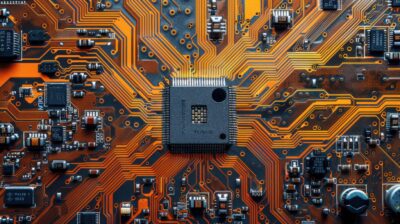
India marked a major milestone in its semiconductor journey with the successful validation of the Vikram-3201 microprocessor during the PSLV-C60 mission.
The indigenously developed 32-bit processor was formally presented to Prime Minister Narendra Modi by Electronics and IT Minister Ashwini Vaishnaw at the Semicon India 2025 conference which was held on 2nd September 2025 at New Delhi, symbolizing a breakthrough in self-reliance for advanced chip technology.
Developed at the Semiconductor Laboratory (SCL), ISRO Mohali, the Vikram-32 is India’s first fully indigenous 32-bit microprocessor. Designed to withstand extreme space conditions, it can perform complex calculations, handle decimals, and process data in 32-bit segments with high efficiency. Its robust architecture makes it resistant to radiation and temperature fluctuations, ensuring reliable performance in satellite launches and critical space applications.
The Vikram-32 showcases India’s rapid advancement since the launch of the India Semiconductor Mission in 2021. In just over three years, the country has evolved from being a consumer to a creator of high-end chips—driven by strong R&D, government support, and an innovation-driven ecosystem.
While its first application is in space exploration, the chip also holds promise for defence, aerospace, automotive, and energy sectors, broadening its strategic significance.
At Semicon India 2025, Minister Vaishnaw also announced:
-
Construction of five new semiconductor fabs
-
Approval of 10 major projects with investments exceeding ₹1.6 lakh crore across six states
-
Support to 23+ chip design startups under the Design Linked Incentive Scheme
Presenting the Vikram-32 to PM Modi marked both a technological leap and India’s emergence as a rising force in the global semiconductor value chain.
(This content is sourced from a syndicated feed. The Japan India Manufacturing Journal website assumes no responsibility or liability for its accuracy, completeness, or content.)




COMMENTS